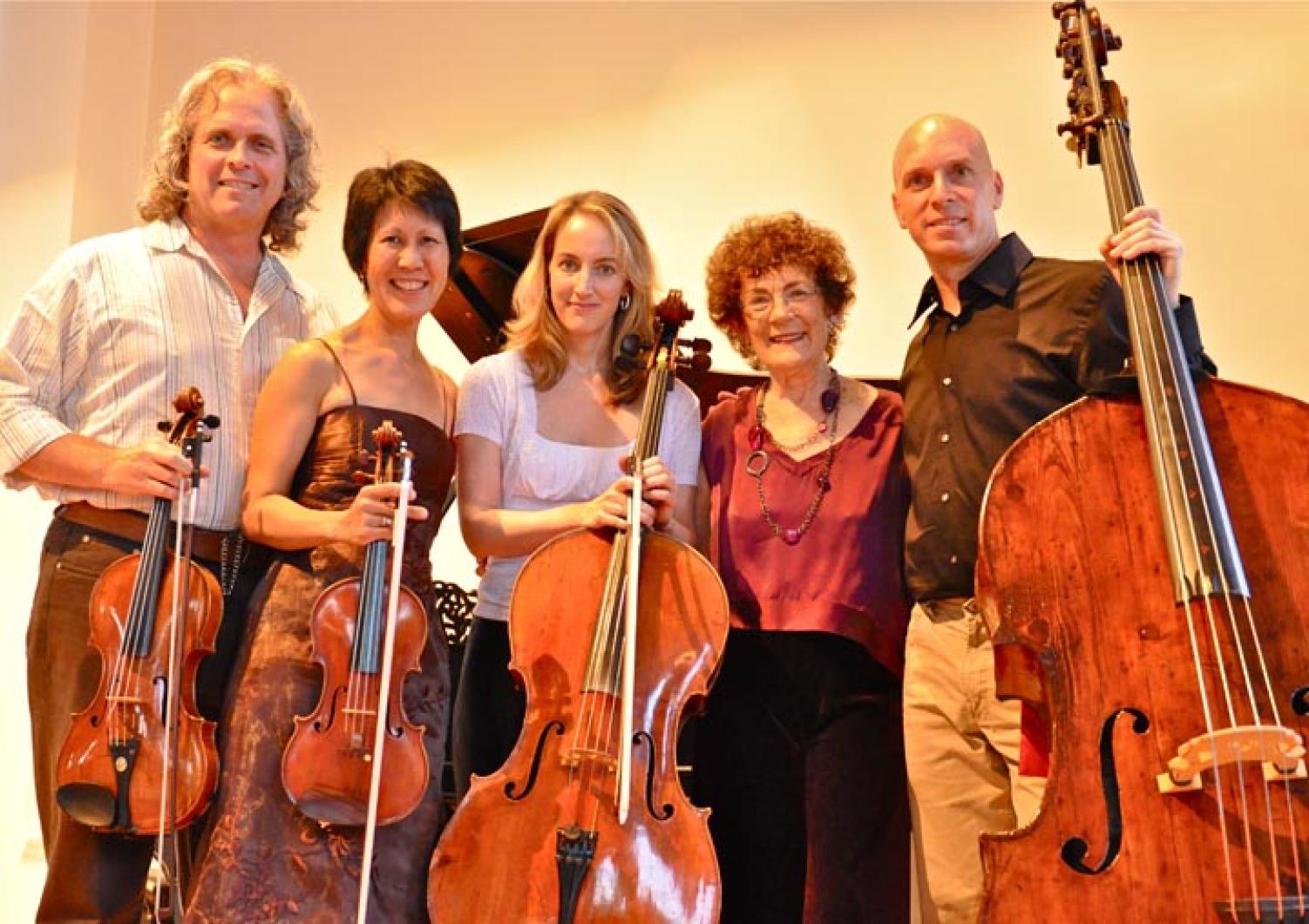Music lovers bound for the Martha’s Vineyard Chamber Music Society’s annual Thanksgiving concert this Saturday had best leave room for dessert. The evening will offer a wide-ranging menu of melodies — some light, some rich — all intended to linger sweetly on the palate.
Guest baritone Thomas Jones presents the first plate — the swaggering Toreador Song from the second act of Georges Bizet’s Carmen.
“Toreadors are rock stars in Spain,” said Mr. Jones in a telephone conversation last week. “When they enter the bull ring, the crowd goes crazy — people are screaming, girls are crying — it’s wild.”
Later the baritone delivers the boastful Largo al factotum from Gioacchino Rossini’s Barber of Seville, known to many as Figaro’s patter song. Mr. Jones calls the two songs big entrance arias, giving Figaro, the town barber, the occasion to tell us how indispensable he is to everyone in town.
Bombast shares the platter with the poignant, the brooding and the romantic. Other songs are the first seven lieder from Robert Schumann’s art song Dichterliebe in which the singer airs his thoughts and doubts.
“We considered calling this concert The Art of the Song, because even the nonvocal pieces sing. Consider the two pieces by early 20th century composer Rebecca Clarke, the Sonata for viola and piano, and Morpheus, also for viola and piano,” said chamber society director Delores (Dee) Stevens.
Guest viola player Scott Woolweaver agreed. “These pieces are really duets for the viola and the piano, like two voices,” he said. “All the vocal pieces [on the program] evoke these Clarkes.”
And then there are the songs of Samuel Barber, both derived from observations about nature. “Rain Has Fallen and Sure on This Shining Night demonstrate the fantastic change from German art songs to the American art song,” Ms. Stevens said. Similarly, the two songs by composer and violinist Charles Martin Loeffler are inspired by nature: La Lune Blanche (the white moon) and Le Rossignol (the nightingale). Though he was born, raised and educated in Germany, Ms. Stevens said Loeffler’s music is more French impressionistic, like Debussy.
More somber moments of the evening set in when Mr. Jones, as the prophet in Mendelssohn’s oratorio Elijah, sings It is Enough. “Elijah is overwhelmed and consumed by a feeling of failure,” Mr. Jones said. “He has failed his people and his God so profoundly that he sees no reason to continue to live.” He continued:
“You’re familiar with oratorios. The soloists stand in a row in front of the chorus, holding large scores stiffly in front of them — even if they know the part — and sing. No movement, no acting. But Elijah is still very moving, despite the formality. It still has drama. This aria is the turning point of the oratorio, Elijah’s lowest moment. At a concert in Indianapolis I looked up at the end of the aria, and the audience was crying.”
The score of Elijah was originally written for the cello, considered by many musicians as the instrument that most closely resembles the human voice. This version was transcribed for viola, and will be played Scott Woolweaver in Saturday’s concert.
A scandalous break with tradition?
“We tend to treat classical music as rigid and unchangeable. I don’t think so,” Mr. Jones said. “I like to think musicians are far less rigid than we think they are. I like to think, what would the composer want? How would he react? I think he’d think this was just great. Hey, composers change their scores over and over before it finally gets published.”
When Mr. Woolweaver heard the pieces his old friend Tom had chosen to sing for the concert, he immediately went to the work by Rebecca Clarke.
“The Sonata is my favorite piece for viola and piano,” he said. “The range of expression is so wide, between romantic and impressionistic. The Morpheus is the god of dreams. The piece is evocative and mysterious, tuneful and lolling . . . well, dreamy!”
Ms. Stevens had never played the Morpheus before and reports that each time she played it she found it more and more beautiful.
“We tend not to use the word beautiful to describe music,” she said. “But in this case you can’t help it. Morpheus is gorgeous. It’s very virtuosic for both viola and piano. One gets the feeling of the shape-changing nature of dreams. It goes from passionate to peaceful.”
What becomes clear when talking to these artists is their enthusiasm about Saturday’s music.
“It’s not a blockbuster chamber concert, with a big Brahms, or a Mozart,” said Mr. Woolweaver. “This concert is going to feel intimate, warm.”
“We’re covering an awful lot of genres, on purpose,” said Mr. Jones. “Why stick to standards? We go from a Bizet opera to a Mendelssohn oratorio to German art songs and finish with popular Broadway love songs.”
The concert finishes with three big numbers from Broadway musicals: Some Enchanted Evening from South Pacific, If Ever I Would Leave You from Camelot, and For Good from Wicked.
As Ms. Stevens said when she first talked about the concert in October: “Let’s have fun with this.”
As for what else they’ve been working on, both guest artists recounted a whirlwind of activity. Mr. Jones will do the Bach Christmas Oratorio with the Handel Society at Dartmouth College. On Dec. 18 he’ll sing with the Boston Civic Orchestra. Also on his calendar is the Brahms Requiem with the Cape Cod Orchestra in January. The chamber society concert on Saturday will be his first on the Vineyard.
Mr. Woolweaver performed at seven music festivals this past summer, from Cape Cod to Buffalo, to California, to Martha’s Vineyard, “always the highlight of my summer,” he said. He’ll join the Boston Baroque at Sanders Theatre in Cambridge on Dec. 31 and Jan. 1 in works by Corelli, Bach, Geminiani and Handel.
The Martha’s Vineyard Chamber Music Society Thanksgiving concert takes place at 7:30 p.m. on Saturday at the Old Whaling Church in Edgartown. Tickets are $15 at the door, free for students. A reception follows. For information call 508-696-8055.







Comments
Comment policy »